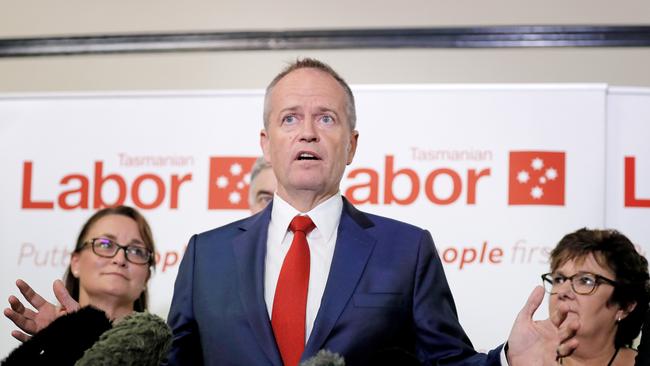Bill Shorten’s bid to increase minimum wage would cost thousands of jobs: new analysis
BILL Shorten’s bid to dramatically increase the minimum wage would send shockwaves through the economy and cost thousands of jobs, new analysis has found.
News
Don't miss out on the headlines from News . Followed categories will be added to My News.
BILL Shorten’s bid to dramatically increase the minimum wage would send shockwaves through the economy and cost thousands of jobs, new analysis has found.
Expert advice from the Department of Prime Minister and Cabinet has warned the Labor proposal could cripple family-run businesses and hurt labour-intensive employers.
BILL SHORTEN ANNOUNCES INTENTION TO LOOK AT RAISING MINIMUM WAGE
BILL SHORTEN GRILLED ON HIS 2018 PROMISES
WIFE HOPES BARNABY JOYCE KEEPS HIS JOB
ANDREWS GOVERNMENT’S LINKS TO CHINESE COMMUNIST PARTY EXPOSED
The federal Labor leader flagged his intent to lift the baseline wage rate for Australian workers during a speech to the National Press Club earlier this month, claiming “the minimum wage is no longer a living wage”.
The departmental advice, based on an Australian Council of Trade Unions push last year to create a “living wage” set at 60 per cent of median earnings, found it would reduce employment, shift the responsibility for re-distribution of income to business and “reduce the incentive to bargain”.
The minimum wage of $694.90 was currently 54 per cent of median earning and raising it to 60 per cent would see it rise by over $50 a week.

Analysis has also found minimum pay for Australia’s lowest-skilled workers would be at least 20 per cent higher than across most other advanced economies and hurt the nation’s competitiveness.
Federal Workplace Minister Craig Laundy said tying Australia’s minimum wage to 60 per cent of the median wage could lead to the closure of about a million small businesses — 226,350 in Victoria alone — that have battled to survive in recent years.
He said the move would “shut an entire generation of young Australians out of the labour market”.
He said despite making no profit in 2015-16, more than 226,350 small business operators in Victoria paid $8.16 billion in wages
“Labor has done no modelling on the economic consequences of this dangerous proposal. It is nothing short of economic vandalism,” he said.
Mr Shorten has said Australia’s wages system was not delivering, with further harm caused by cuts to penalty rates and enterprise bargaining “on life support”.
“Workers needed pay rises. Our goal should be a real, living wage — effectively raising the pay of all Australians, particularly the 2.3 million in the award system,” he said.


